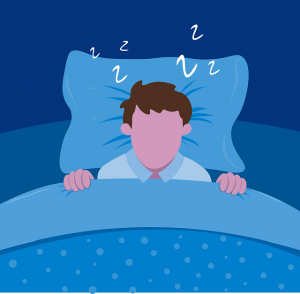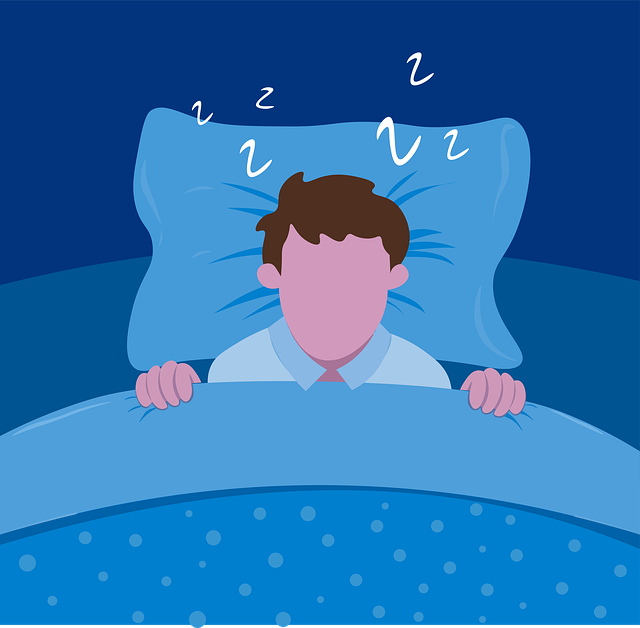Sleep is an essential part of our daily routine, and it plays a crucial role in maintaining our overall health and wellness. However, many people tend to overlook the importance of sleep and often sacrifice it for other activities. In this article, we will discuss the negative effects of sleep deprivation on our health and wellness, as well as the benefits of getting enough sleep. We will also provide practical tips for improving sleep habits and highlight the link between sleep and weight loss, as well as mental health.
Why Skimping on Sleep Could Be Sabotaging Your Health Goals
 Lack of sleep can hinder progress towards health goals such as weight loss or building muscle. When we don’t get enough sleep, our body produces more cortisol, a stress hormone that can lead to weight gain and muscle loss. Additionally, lack of sleep can affect our motivation to exercise and make healthy food choices. It can also lead to increased snacking and cravings for high-calorie foods.
Lack of sleep can hinder progress towards health goals such as weight loss or building muscle. When we don’t get enough sleep, our body produces more cortisol, a stress hormone that can lead to weight gain and muscle loss. Additionally, lack of sleep can affect our motivation to exercise and make healthy food choices. It can also lead to increased snacking and cravings for high-calorie foods.
The Negative Effects of Sleep Deprivation
Sleep deprivation can have various negative effects on our physical and mental health. It can lead to decreased cognitive function, mood swings, and weakened immune system. Lack of sleep can also affect our ability to concentrate, make decisions, and solve problems. It can also increase the risk of accidents and injuries.
The Benefits of Getting Enough Sleep
Getting enough sleep has numerous benefits for our overall health and wellness. It can improve memory consolidation, increase energy levels, and enhance mood. It can also reduce inflammation in the body, lower stress levels, and improve cardiovascular health.
How Sleep Deprivation Affects Your Health
Sleep deprivation can have a significant impact on physical health by increasing the risk of heart disease, diabetes, obesity, and other chronic conditions. Lack of sleep can affect insulin sensitivity, leading to higher blood sugar levels and an increased risk of developing type 2 diabetes. It can also affect the hormones that regulate appetite, leading to overeating and weight gain. Additionally, sleep deprivation can increase the risk of hypertension, stroke, and heart attack.
How to Get More Sleep
Improving sleep habits can help us get more restful and restorative sleep. Some practical tips for improving sleep quality include establishing a consistent bedtime routine, creating a sleep-conducive environment, limiting caffeine intake, avoiding screens before bedtime, and practicing relaxation techniques such as meditation or deep breathing.
The Link Between Sleep and Weight Loss
Sleep plays a crucial role in weight loss efforts by affecting hormones that regulate appetite and metabolism. Lack of sleep can lead to an increase in the hunger hormone ghrelin and a decrease in the satiety hormone leptin, leading to overeating and weight gain. Additionally, sleep deprivation can affect metabolism by reducing the number of calories burned at rest.
The Impact of Sleep on Mental Health
Sleep deprivation can have a significant impact on mental health by increasing the risk of depression and anxiety. Lack of sleep can affect mood regulation and emotional processing, leading to irritability, mood swings, and decreased resilience to stress. It can also affect cognitive function, memory consolidation, and decision-making abilities.
Tips for Improving Your Sleep Quality
In addition to establishing a consistent bedtime routine and creating a sleep-conducive environment, there are other tips for improving sleep quality. These include avoiding alcohol before bedtime, exercising regularly but not too close to bedtime, avoiding large meals before bedtime, and practicing relaxation techniques such as yoga or deep breathing.
In conclusion, getting enough sleep is essential for our overall health and wellness. Lack of sleep can have numerous negative effects on our physical and mental health, while getting enough restful and restorative sleep can improve memory consolidation, increase energy levels, enhance mood, reduce inflammation in the body, lower stress levels, and improve cardiovascular health. By prioritizing sleep and implementing practical tips for improving sleep habits, we can achieve optimal health and wellness.








